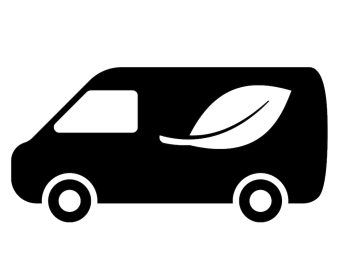New research revealing UK fleet ambitions to go fully electric by 2030 is now out from Wex.

The global specialist in commerce solutions commissioned Frost & Sullivan to explore the Commercial EV Transition across Europe, North America and Asia-Pacific among mixed-energy fleet operators, and found that UK fleets are the forefront.
In the UK, almost one in five (18.0%) of respondents said they’re planning to switch all vehicles to EVs by 2030. But many more fleets have midway targets. A further 11.5% said they’ll switch between 76% and 99% of the fleet to EV by the end of the decade while 39.3% reckon they’ll switch 51 to 75%.
And a quarter (24.6%) said they’ll have between 26% and 50% of the fleet as fully electric by 2030, while 4.9% are switching up to 25% to EVs.
The global findings are also encouraging. The Wex study of mixed-energy fleet operators at over 500 organisations with commercial vehicles reveals 80% intend for at least 25% of their fleets to be comprised of electric vehicles by 2030 and 42% stated that half or more of their fleet would be composed of EVs by 2030.
In the UK, the Wex data reveals organisations are feeling the pressure to decarbonise from customers who expect them to be greener (80%), and they know it impacts their brand image (77%). Plus, several of them have made internal commitments to reduce emissions (77%).
Wex also noted that in the UK, along with places such as Benelux and New Zealand, organisations are more concerned about their reputation and what their customers think than costs.
A significant 73% of UK fleets have set a specific target date to reduce emissions. That’s much higher than the global average of 59%.
The biggest roadblock is public charging, which is causing a lot of headaches for UK organisations that are trying to make the switch. UK fleets rely on public charging (70%) more than fleets in other countries (62% on average), but they also find it more frustrating than other markets. Finding a station is tough, charging speeds are inconsistent, and even paying can be a hassle.
Finally, when it comes to payment solutions, security is the top priority for fleet operators in the UK. A total of 56% of UK survey respondents want to make sure that transactions are safe and secure. This was also the top priority for 65% of German fleet operators.
“Organisations know EVs can benefit commercial fleets, but electrification is a gradual process that involves more than just vehicle replacement,” said Carlos Carriedo, chief operating officer, Americas payments & mobility at Wex.
“This report’s findings indicate a fleet manager’s focus isn’t on ‘if’ or ‘when’ to transition but on ‘how best.’ A key strategy is recognising the value of mixed-energy fleets for a smooth and effective shift to electrification.”
“Operators will maintain a mix of traditional and electric vehicles for the foreseeable future, introducing complexities in operations, infrastructure, energy sourcing and payments,” Carriedo continued. “A mixed-energy fleet approach mitigates risk, allowing businesses to adapt, learn and, if they desire, transition fully to electric mobility when the infrastructure is ready.”
The full Wex report on ‘The Commercial EV Transition: Global Insights on a Mixed-Energy Fleet Future’ is here.

